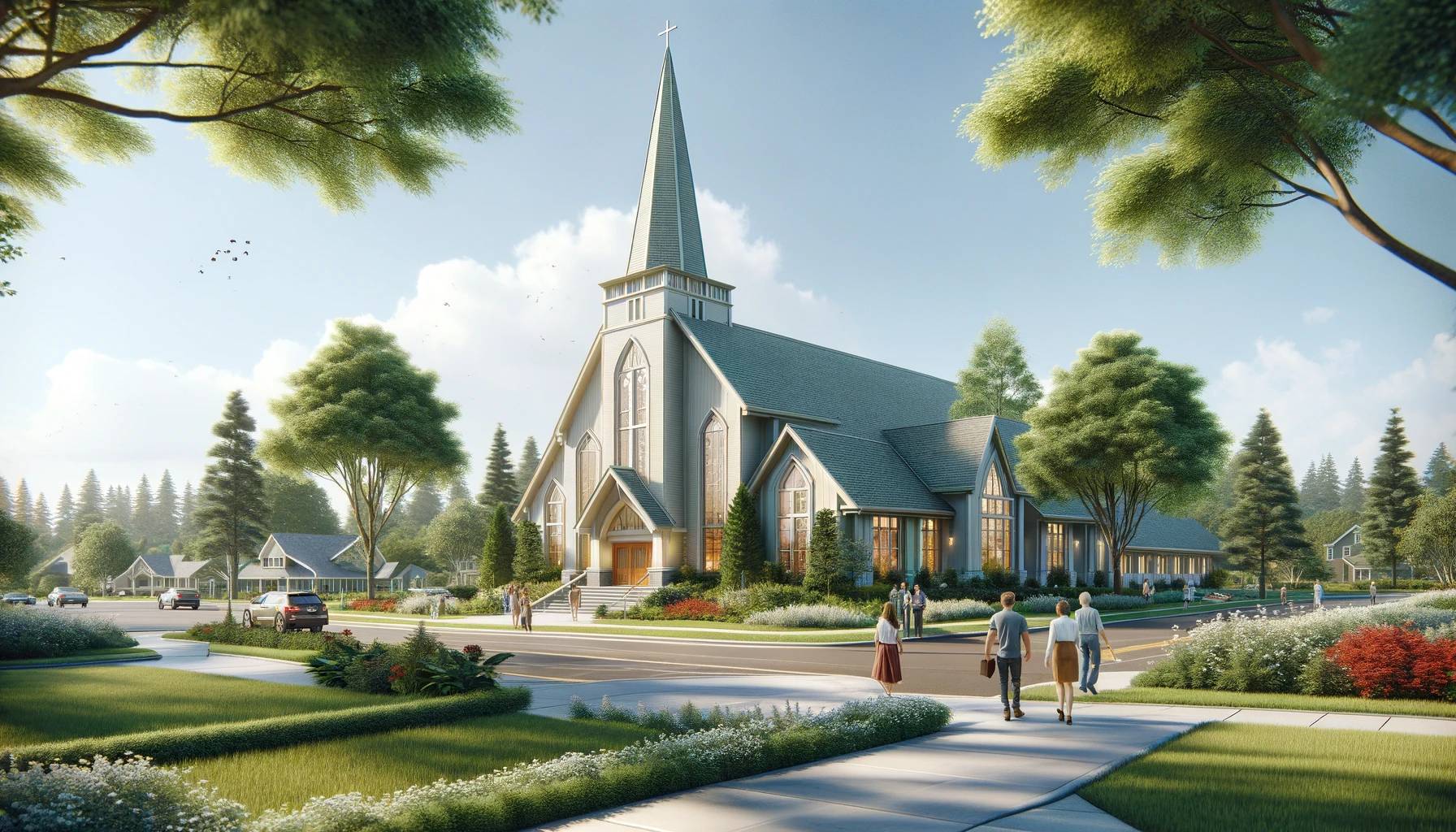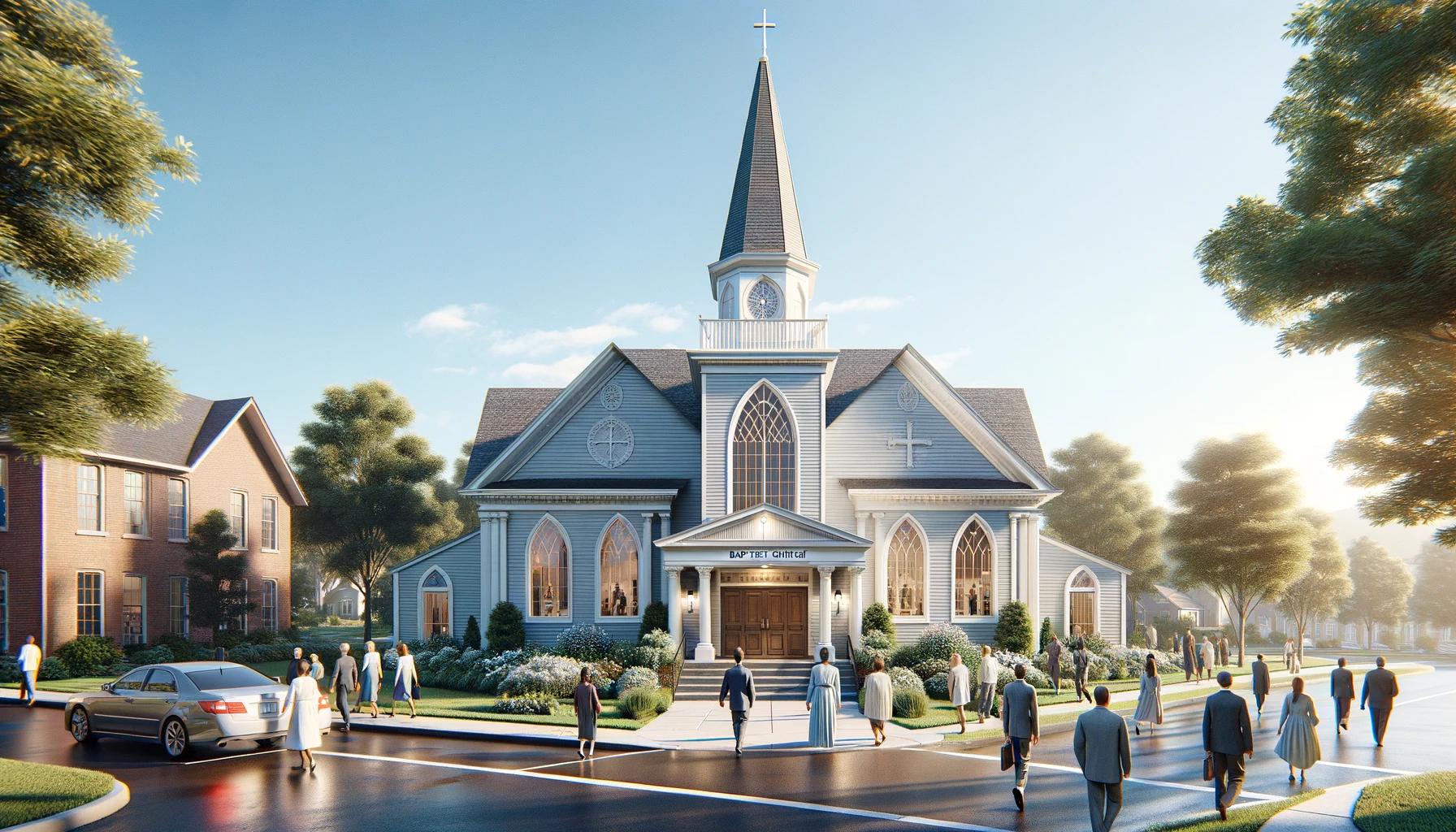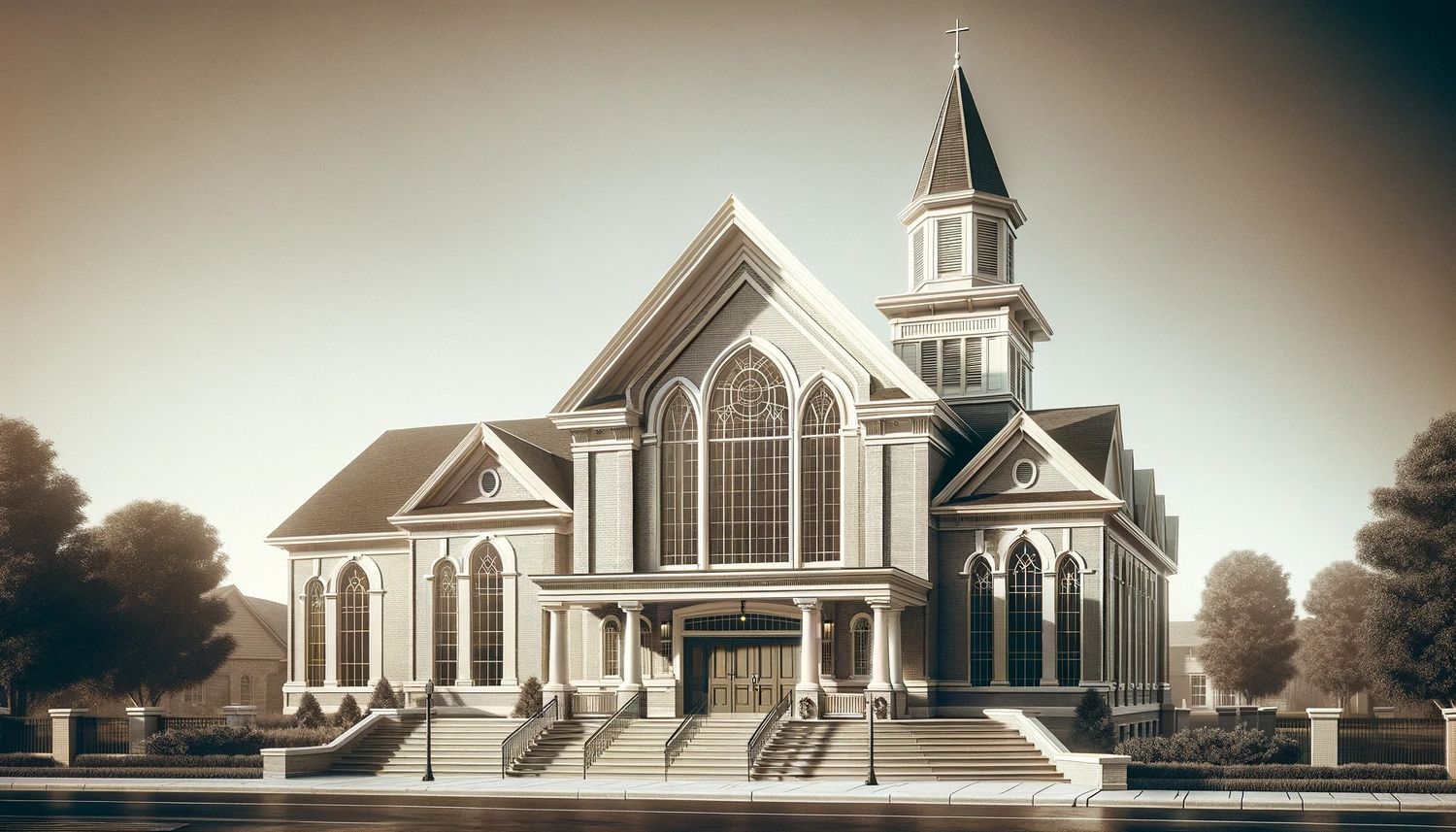Home>Theology and Spirituality>What Is A Regular Baptist


Theology and Spirituality
What Is A Regular Baptist
Published: February 23, 2024
Ericka Andersen, an editor at Christian.net, expertly merges digital strategy with content creation, focusing on faith and societal issues. Her communication skills enhance the platform's engaging narratives, fostering meaningful dialogue on belief's impact on society.
Discover the core beliefs and practices of Regular Baptist churches and gain insight into their theology and spirituality. Explore the distinctive characteristics of Regular Baptist faith.
(Many of the links in this article redirect to a specific reviewed product. Your purchase of these products through affiliate links helps to generate commission for Christian.net, at no extra cost. Learn more)
Table of Contents
Introduction
Regular Baptists are a significant denomination within the broader Baptist tradition, known for their commitment to traditional Baptist principles and practices. With a rich history and distinct beliefs, Regular Baptists have made a lasting impact on the religious landscape.
The term "Regular Baptist" refers to those who adhere to the "regular" or traditional Baptist principles, distinguishing themselves from other Baptist groups by their strict adherence to historic Baptist doctrines. This commitment to traditional beliefs has shaped the identity and practices of Regular Baptists, setting them apart within the larger Baptist community.
As we delve into the history, beliefs, and practices of Regular Baptists, it becomes evident that their unwavering dedication to foundational Baptist tenets has been a defining characteristic throughout the centuries. Understanding the unique aspects of Regular Baptist faith and practice provides valuable insight into the broader tapestry of Christian denominations and their diverse expressions of faith.
Read more: What Was John The Baptist’s Baptism For?
History of Regular Baptists
The history of Regular Baptists is deeply intertwined with the broader narrative of the Baptist movement. The term "Regular Baptist" emerged during the 18th century in America, signifying a commitment to the regular or established principles of Baptist faith and practice. This distinction was particularly relevant during a period when various theological perspectives and doctrinal interpretations were shaping the landscape of Baptist congregations.
Regular Baptists trace their historical roots to the early days of the Baptist movement in America, which was marked by a fervent commitment to the autonomy of local churches, believer's baptism, and the priesthood of all believers. These foundational principles formed the bedrock of Regular Baptist identity and set them apart from other denominational expressions within the Baptist tradition.
During the 18th and 19th centuries, Regular Baptists played a pivotal role in the shaping of American religious history. They were instrumental in the proliferation of Baptist churches across the expanding frontier, contributing to the growth and influence of the Baptist movement in the United States. The commitment to traditional Baptist principles, such as congregational governance and the authority of Scripture, served as a guiding force for Regular Baptist congregations as they navigated the challenges and opportunities of a rapidly changing society.
The 20th century witnessed the continued growth and diversification of Regular Baptist churches, with an emphasis on missions, evangelism, and theological education. This period also saw the formation of associations and fellowships that provided a platform for collaboration and mutual support among Regular Baptist congregations.
In recent decades, Regular Baptists have remained steadfast in their adherence to historic Baptist doctrines while adapting to the evolving cultural and social dynamics of the modern era. The preservation of traditional beliefs and practices has been a hallmark of Regular Baptist identity, reflecting a commitment to the enduring truths of the Christian faith.
The history of Regular Baptists is a testament to their resilience, adaptability, and unwavering dedication to the core principles of Baptist theology. As they continue to navigate the complexities of contemporary society, Regular Baptists draw inspiration from their rich historical legacy while embracing new opportunities to proclaim the timeless message of the gospel.
This historical journey underscores the enduring significance of Regular Baptists within the broader tapestry of Christian denominations, highlighting their distinctive contributions to the ongoing narrative of faith and practice.
Beliefs and Practices of Regular Baptists
Regular Baptists hold to a set of core beliefs and practices that define their identity and shape their communal life. These convictions are deeply rooted in historic Baptist principles and serve as guiding tenets for their faith and conduct.
Core Beliefs
-
Biblical Authority: Regular Baptists affirm the absolute authority and sufficiency of the Bible as the inspired Word of God. They uphold the Scriptures as the ultimate source of divine revelation and guidance for faith and practice.
-
Salvation by Grace through Faith: Central to Regular Baptist theology is the belief in salvation by grace through faith in Jesus Christ. They emphasize the atoning work of Christ on the cross as the sole basis for reconciliation with God.
-
Believer's Baptism: Regular Baptists adhere to the practice of believer's baptism, viewing it as a public declaration of one's personal faith in Christ. This baptism is typically administered through immersion, symbolizing the believer's identification with the death, burial, and resurrection of Jesus.
-
Autonomy of the Local Church: Regular Baptists affirm the autonomy of the local church, recognizing each congregation as self-governing and responsible for its own affairs. This principle underscores the independence and authority of individual church bodies.
-
Priesthood of All Believers: Regular Baptists uphold the priesthood of all believers, affirming that every Christian has direct access to God and the responsibility to intercede for others and engage in ministry.
Communal Practices
-
Worship: Regular Baptist worship services typically center on expository preaching, congregational singing, prayer, and the observance of the ordinances, including baptism and the Lord's Supper.
-
Discipleship and Education: Regular Baptist congregations prioritize the teaching and nurturing of believers through Sunday school, Bible studies, and discipleship programs aimed at spiritual growth and maturity.
-
Missions and Evangelism: Regular Baptists are committed to global missions and evangelistic outreach, seeking to share the message of Christ both locally and internationally.
-
Community Engagement: Regular Baptist churches often engage in community service, outreach initiatives, and social ministries as a tangible expression of Christ's love to those in need.
-
Fellowship and Mutual Support: Regular Baptist congregations foster a sense of community and mutual support among members, emphasizing the importance of fellowship and care for one another.
The beliefs and practices of Regular Baptists reflect a deep commitment to historic Baptist principles while embracing the call to engage with contemporary challenges and opportunities. These foundational convictions continue to shape the identity and mission of Regular Baptist congregations, serving as a source of unity and purpose within the broader Christian community.
Read more: What Is A Bishop To A Baptist
Differences between Regular Baptists and other Baptist denominations
Regular Baptists, while sharing common Baptist heritage, exhibit distinct differences from other Baptist denominations in various aspects of theology, practice, and ecclesiology. These differences contribute to the unique identity and ethos of Regular Baptist congregations within the broader Baptist family.
Theological Emphases
Regular Baptists uphold a strict adherence to historic Baptist doctrines, emphasizing the authority of Scripture, salvation by grace through faith, and believer's baptism by immersion. This unwavering commitment to traditional theological positions sets them apart from other Baptist groups that may adopt a more diverse range of theological perspectives, including variations in soteriology and sacramental theology.
Ecclesiological Principles
Regular Baptists strongly affirm the autonomy of the local church, viewing each congregation as self-governing and independent in matters of faith and practice. This stands in contrast to some other Baptist denominations that may exhibit varying degrees of congregational autonomy, hierarchical structures, or associations with broader denominational bodies, impacting decision-making and governance within the church.
Worship and Sacramental Practices
In worship and sacramental observances, Regular Baptists often maintain a more traditional approach, placing emphasis on expository preaching, congregational singing, and the symbolic significance of believer's baptism and the Lord's Supper. This differs from certain Baptist denominations that may incorporate liturgical elements, diverse forms of baptism, or differing views on the nature of the Lord's Supper, reflecting a broader spectrum of worship and sacramental practices within the Baptist tradition.
Read more: What Is Bedside Baptist
Missional and Evangelistic Focus
Regular Baptists demonstrate a strong commitment to global missions and evangelism, actively engaging in outreach efforts to share the gospel both locally and internationally. While this emphasis on mission is shared by many Baptist groups, the specific strategies, partnerships, and priorities in mission work may vary, reflecting the diverse approaches to missional and evangelistic endeavors across different Baptist denominations.
Doctrinal and Practical Distinctions
Regular Baptists maintain distinct doctrinal positions on various theological issues, such as eschatology, ecclesiology, and the nature of the church. These doctrinal nuances, along with practical considerations related to church governance, pastoral leadership, and educational initiatives, contribute to the unique identity and ethos of Regular Baptist congregations, distinguishing them from other Baptist denominations with differing doctrinal emphases and operational frameworks.
The differences between Regular Baptists and other Baptist denominations underscore the rich diversity within the broader Baptist tradition, highlighting the multifaceted expressions of faith, practice, and theological conviction that collectively contribute to the vibrant tapestry of Baptist congregations worldwide.
The role of Regular Baptists in the community
Regular Baptists play a vital and multifaceted role in their local communities, embodying the principles of Christian service, compassion, and outreach. Their impact extends beyond the walls of the church, influencing and enriching the social fabric of the neighborhoods, towns, and cities where they are situated. The following aspects illustrate the significant role of Regular Baptists in the community:
Community Service and Outreach
Regular Baptist congregations are actively involved in a wide array of community service initiatives, ranging from food drives and clothing donations to disaster relief efforts and outreach programs for marginalized populations. Their commitment to meeting the practical needs of individuals and families reflects the compassionate ethos of Christian ministry, fostering a tangible expression of care and support within the community.
Read more: What Is A Baptist Religion
Educational and Youth Programs
Many Regular Baptist churches host educational programs, tutoring services, and youth outreach activities aimed at nurturing the intellectual, emotional, and spiritual development of young people. These initiatives provide valuable resources and mentorship opportunities, equipping the next generation with essential skills and values that contribute to the overall well-being of the community.
Counseling and Support Services
Regular Baptist congregations often offer counseling services, support groups, and pastoral care to individuals and families facing various challenges, including mental health issues, relational conflicts, and grief. These avenues of support serve as vital resources for community members in times of personal crisis and emotional need, embodying the ministry of compassion and healing.
Advocacy and Social Justice
Regular Baptists are actively engaged in advocating for social justice, human rights, and ethical causes that align with their Christian convictions. Whether addressing issues of poverty, injustice, or human dignity, they strive to be voices of compassion and change within the broader community, seeking to uphold the principles of righteousness and mercy in the public sphere.
Spiritual and Moral Guidance
Through their public witness and engagement, Regular Baptists provide spiritual and moral guidance to individuals and families, offering a message of hope, redemption, and ethical living. Their presence as agents of spiritual influence contributes to the moral fabric of the community, fostering values of integrity, compassion, and solidarity.
In summary, the role of Regular Baptists in the community encompasses a holistic commitment to service, compassion, advocacy, and spiritual influence, reflecting the transformative impact of Christian faith in addressing the diverse needs and aspirations of the broader society.
Read more: What Is Evangelical Baptist
Conclusion
In conclusion, the distinctive identity and enduring legacy of Regular Baptists within the broader Baptist tradition are characterized by a steadfast commitment to historic Baptist principles, unwavering faith, and active engagement in the community. The historical journey of Regular Baptists reflects a narrative of resilience, adaptability, and unwavering dedication to the core tenets of Baptist theology. From their early roots in the American religious landscape to their contemporary presence, Regular Baptists have remained faithful to the foundational beliefs and practices that define their identity.
The beliefs and practices of Regular Baptists, rooted in the authority of Scripture, salvation by grace through faith, and believer's baptism, serve as guiding principles that shape their communal life and mission. Their emphasis on the autonomy of the local church, missions, evangelism, and community engagement underscores a holistic commitment to embodying the values of Christian faith in practical, tangible ways.
Furthermore, the distinct theological emphases, ecclesiological principles, worship practices, and missional focus of Regular Baptists set them apart from other Baptist denominations, highlighting the rich diversity within the broader Baptist tradition. These differences contribute to the unique identity and ethos of Regular Baptist congregations, reflecting a multifaceted expression of faith, practice, and theological conviction.
The role of Regular Baptists in the community extends beyond the confines of religious gatherings, encompassing a wide spectrum of service, compassion, advocacy, and spiritual influence. Their active involvement in community service, educational programs, counseling services, advocacy for social justice, and provision of spiritual and moral guidance exemplifies their commitment to being agents of positive transformation and hope within the broader society.
In essence, the enduring significance of Regular Baptists within the tapestry of Christian denominations is a testament to their unwavering dedication to the timeless truths of the Christian faith and their impactful presence in the communities they serve. As Regular Baptists continue to navigate the complexities of the modern era, their rich historical legacy, distinct beliefs, and active engagement in the community position them as vital contributors to the ongoing narrative of faith, service, and spiritual influence.
The enduring legacy of Regular Baptists is a testament to their resilience, adaptability, and unwavering dedication to the core principles of Baptist theology. As they continue to navigate the complexities of contemporary society, Regular Baptists draw inspiration from their rich historical legacy while embracing new opportunities to proclaim the timeless message of the gospel.











